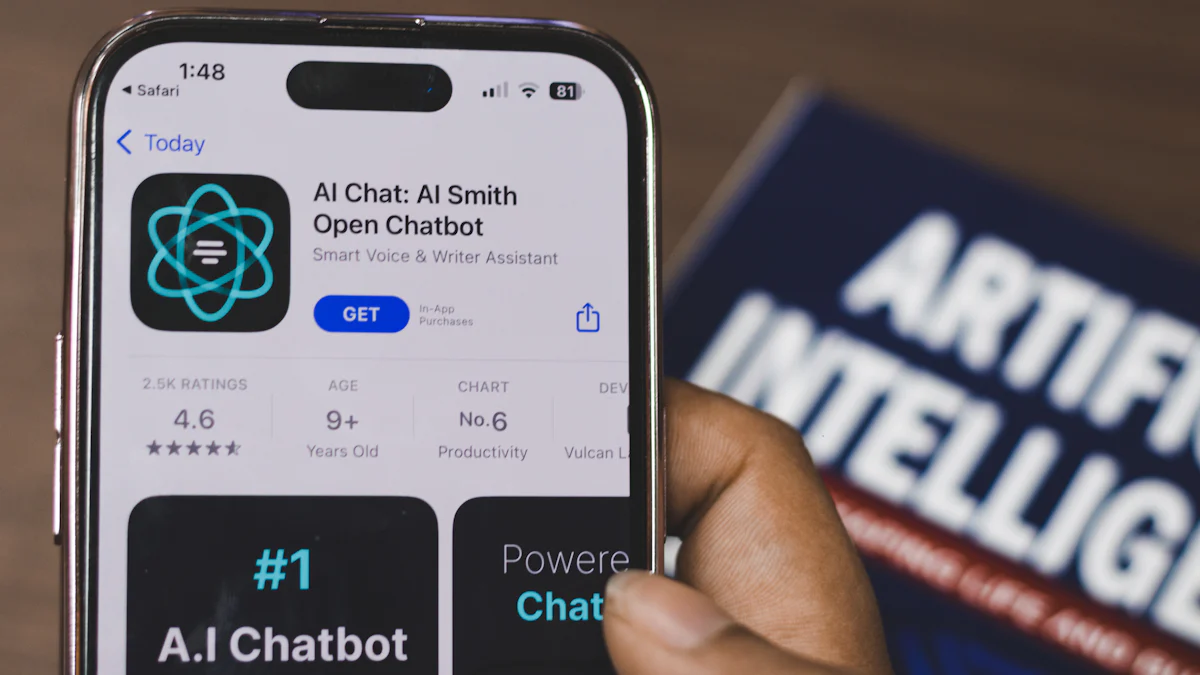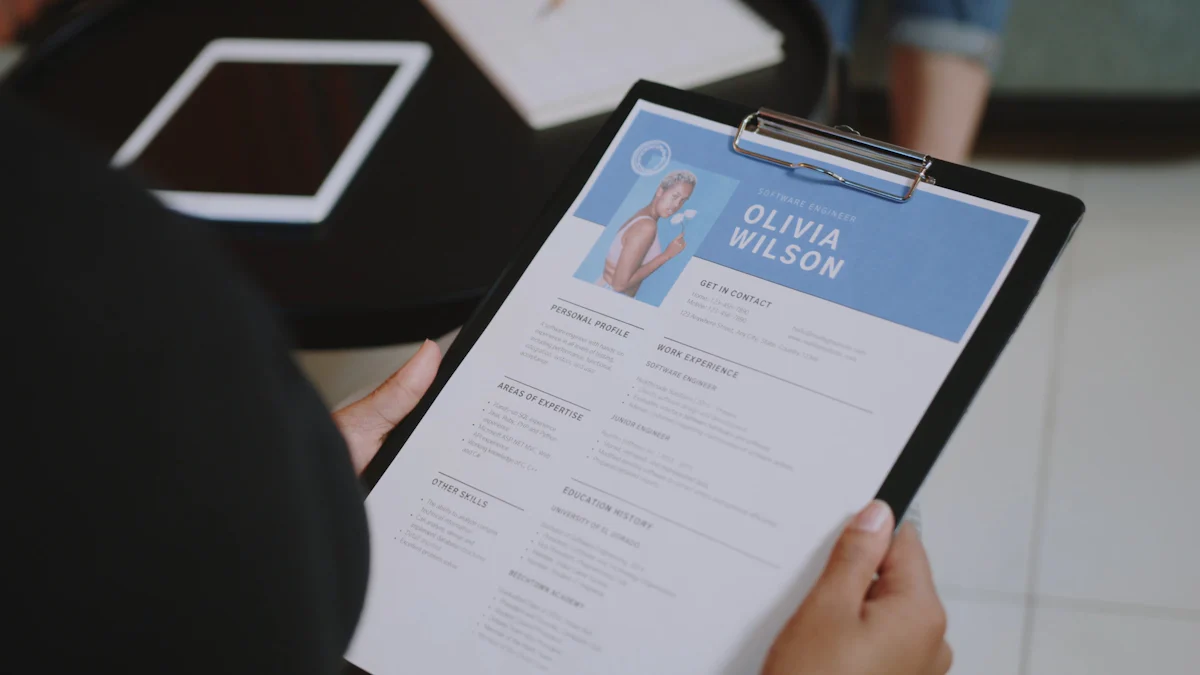Evaluating AI Hiring Software's Impact on Candidate Selection

AI hiring software has revolutionized candidate selection, transforming how companies identify and recruit talent. With 88% of companies globally integrating AI into HR processes, the impact is undeniable. These tools promise efficiency, with some firms reporting a 90% reduction in time-to-fill ratios. However, concerns about fairness and transparency persist. While AI can streamline recruitment, it also raises questions about algorithmic bias and decision-making clarity. The dual nature of AI's impact presents both opportunities and challenges, urging a balanced approach to harness its full potential.
Benefits of AI Hiring Software

Improve Efficiency in Recruitment
AI hiring software significantly enhances the efficiency of recruitment and selection processes. Traditional hiring methods often involve time-consuming tasks, such as manually sifting through resumes and scheduling interviews. AI-driven methods streamline these processes by automating repetitive tasks. For instance, AI can quickly analyze large volumes of resumes, identifying candidates whose skills and experiences align with job descriptions. This automation not only saves time but also allows recruiters to focus on more strategic aspects of hiring.
Streamlining Processes
AI hiring software excels at streamlining recruitment processes. By automating the initial screening of candidates, it reduces the workload on human recruiters. This technology evaluates resumes, classifies candidates, and even schedules interviews, all without human intervention. As a result, companies can process applications more swiftly and efficiently, ensuring that they do not miss out on top talent due to delays.
Reducing Time-to-Hire
One of the most significant advantages of AI hiring software is its ability to reduce time-to-hire. By automating various stages of recruitment and selection, AI tools can cut down the time it takes to fill positions. This speed is crucial in competitive job markets where the best candidates are often off the market quickly. Companies that leverage AI hiring tools can secure top talent faster, giving them a competitive edge.
Reduce Bias Reduction Potential
AI hiring software holds the promise of reducing bias in recruitment and selection. Human recruiters, despite their best intentions, can be influenced by unconscious biases. AI, when properly designed and implemented, can help mitigate these biases by focusing solely on data-driven decision-making.
Data-Driven Decision-Making
AI hiring software relies on data to make decisions. It evaluates candidates based on objective criteria, such as skills, experience, and qualifications, rather than subjective factors. This data-driven approach ensures that decisions are consistent and fair, reducing the likelihood of bias affecting the outcome.
Minimizing Human Bias
By minimizing human involvement in the initial stages of recruitment and selection, AI hiring software can help reduce unconscious bias. It evaluates candidates based on their qualifications and fit for the role, rather than personal characteristics. This approach promotes diversity and inclusion, ensuring that all candidates have an equal opportunity to succeed.
Enhanced Candidate Experience
AI hiring software not only benefits employers but also enhances the candidate experience. In today's fast-paced world, candidates expect timely and personalized communication from potential employers. AI-powered technology can deliver on these expectations, improving the overall recruitment and selection process.
Personalized Communication
AI hiring software enables personalized communication with candidates. It can send tailored messages and updates, keeping candidates informed about their application status. This level of personalization makes candidates feel valued and respected, enhancing their overall experience with the company.
Faster Feedback Loops
Candidates appreciate prompt feedback during the recruitment and selection process. AI hiring software facilitates faster feedback loops by automating communication. Candidates receive timely updates on their application status, interview schedules, and next steps. This efficiency not only improves the candidate experience but also reflects positively on the company's brand.
Future Trends and Ethical Considerations in AI Recruitment

Emerging AI Technologies
The landscape of recruitment continues to evolve with the advent of emerging AI technologies. These innovations promise to transform the way organizations approach hiring, making the process more efficient and effective.
Machine Learning and NLP
Machine learning and natural language processing (NLP) stand at the forefront of AI advancements in recruitment. Machine learning algorithms analyze vast amounts of data to identify patterns and predict candidate success. This capability enhances the automated recruitment process by enabling more accurate candidate matching. NLP, on the other hand, allows AI-driven recruitment tools to understand and interpret human language. This technology improves the screening of resumes and applications, ensuring that candidates with the right skills and experiences are identified quickly.
Integration with HR Tech
The integration of AI with existing HR technologies represents a significant trend in recruitment. Predictive recruitment software, when combined with traditional HR systems, offers a comprehensive solution for talent acquisition. This integration streamlines workflows, reduces manual tasks, and provides valuable insights into candidate selection. As AI decision-making becomes more prevalent, organizations can leverage these tools to make informed hiring decisions, ultimately enhancing the overall recruitment strategy.
Ethical AI Practices
As AI technologies become more embedded in recruitment processes, ethical considerations take center stage. Ensuring fairness, transparency, and accountability in AI-driven recruitment practices is crucial to prevent biases and discrimination.
Fair and Unbiased Algorithms
Developing fair and unbiased algorithms remains a priority for ethical AI practices. AI systems learn from historical data, which may contain inherent biases. To address this, organizations must implement rigorous testing and validation processes. By doing so, they can ensure that AI tools do not perpetuate existing inequalities. Regular audits and updates to the algorithms help maintain fairness and promote diversity in hiring.
Accountability and Transparency
Accountability and transparency are essential components of ethical AI recruitment. Employers must provide clear explanations of how AI tools make decisions. This transparency builds trust among candidates and stakeholders, ensuring that the recruitment process remains open and understandable. Additionally, organizations should establish accountability measures to address any issues that arise from AI decision-making. By fostering an environment of openness, companies can navigate the ethical challenges of AI in recruitment effectively.
AI hiring software offers significant benefits, such as increased efficiency and improved candidate screening. It streamlines the selection process, allowing recruiters to focus on strategic tasks. Recruiters must balance AI tools with human judgment to ensure fair and effective hiring. Best practices include regular audits of AI systems and maintaining transparency in decision-making. By integrating ethical AI practices, organizations can enhance their recruitment strategies and foster a more inclusive hiring environment.
FAQ
Who is Moka HR?
MokaHR is a leading provider of AI-powered recruitment solutions, dedicated to empowering enterprises throughout the hiring journey.Trusted by over one million HR professionals, MokaHR delivers intelligent automation, data-driven insights, and scalable platforms that enable organizations to accelerate recruitment, enhance decision-making efficiency, and advance digital transformation in talent acquisition.
How is AI used in recruiting?
AI plays a transformative role in recruiting by enhancing efficiency and precision. Recruiters use AI-powered chatbots to engage with candidates, providing instant responses to inquiries. Machine learning algorithms sift through resumes, identifying the most suitable candidates based on job requirements. Predictive analytics forecast the future performance of applicants, aiding in informed decision-making. Automated scheduling software organizes interviews, reducing administrative burdens and allowing recruiters to focus on strategic tasks.
Can you use AI for job applications?
Yes, AI significantly enhances the job application process. It scans resumes and job descriptions to identify key skills and requirements, matching them with the most appropriate applicants. This capability ensures that only the most qualified candidates progress through the recruitment stages, streamlining the selection process and improving the quality of hires.
What is AI recruitment software?
AI recruitment software serves as a digital assistant in the hiring process. Our Moka AI-ATS automates various tasks, such as resume screening and interview scheduling, to streamline human resource management. By processing large volumes of data quickly, it identifies the most relevant candidates based on job criteria, enhancing the overall efficiency of recruitment efforts.
How can recruiters use AI to assist them the most?
Recruiters can leverage AI tools like chatbots and applicant tracking systems to optimize their talent acquisition processes. These tools improve the quality of hires by removing time-consuming tasks and helping recruiters meet their key performance indicators (KPIs). By integrating AI into human resource management, recruiters can focus on strategic decision-making and candidate engagement.
What are the key features to look for in AI hiring software?
When selecting AI hiring software, organizations should consider features that streamline the hiring process. Key features include resume screening capabilities, predictive analytics for candidate success, and integration with existing HR technologies. These features enhance the impact of artificial intelligence in recruitment, allowing recruiters to efficiently manage large volumes of applications and identify top talent.
See Also
How AI Recruitment Tools Transform Contemporary Hiring Approaches
Harnessing AI Recruitment Tools for Anticipating Candidate Performance
Utilizing AI Hiring Tools to Develop Predictive Analytics
From recruiting candidates to onboarding new team members, MokaHR gives your company everything you need to be great at hiring.
Subscribe for more information

